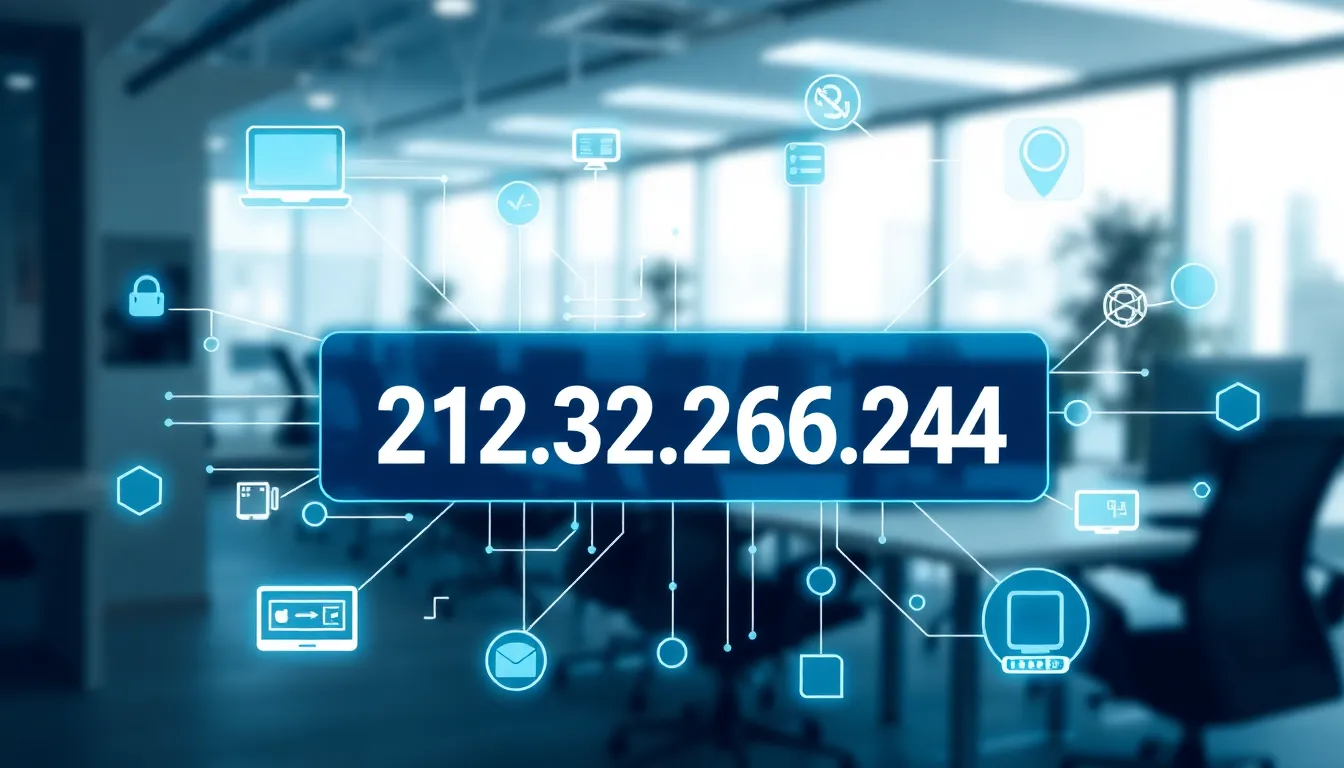Imagine your home having an address where friends can send invitations and packages. In the digital world, every device connected to the internet also needs an address: that’s where IP addresses come in. Today, we’re diving into the mysterious world of IP addresses, specifically looking at the infamous 212.32.266.234. Whether you’re a tech enthusiast or just someone trying to understand this digital language, get ready for a journey that’s both educational and a little amusing. After all, who knew numbers could be so intriguing?
212.32.266.234

An IP address, short for Internet Protocol address, serves as a unique identifier for each device connected to a network. Think of it as your device’s digital address on the internet. Just like how a physical address tells the postal service where to deliver your mail, an IP address tells data packets where to go and from where they’ve come. There are two primary versions of IP addresses: IPv4 and IPv6. The IPv4 format, which you might often see, consists of four sets of numbers ranging from 0 to 255 (like 192.168.1.1). In contrast, IPv6 uses a longer string of characters to accommodate an ever-growing number of devices. These addresses aren’t just arbitrary: they’re essential for efficient internet communication.
Types of IP Addresses
Understanding IP addresses goes beyond just knowing their numbers. There are two main types: dynamic and static IP addresses.
Dynamic IP Addresses
Dynamic IP addresses change frequently. Each time a device connects to the internet, it can receive a different IP address from the pool maintained by an Internet Service Provider (ISP). This is advantageous for ISPs as they conserve IP address spaces and enhance network security. In many homes, dynamic IP addresses are the norm.
Static IP Addresses
On the other hand, a static IP address remains constant. Once assigned, it doesn’t change and is often reserved for specific devices, such as servers or networked printers. This consistency can be crucial for businesses that rely on remote access or services requiring a stable connection. So, whether you’re streaming your favorite show or running a business, your device’s IP address plays a pivotal role.
Decoding the IP Address 212.32.266.234
Now, let’s zero in on the IP address 212.32.266.234. At first glance, it might look like just another random string of numbers, but there’s more to it than meets the eye. This address belongs to a certain global ISP.
But, if you were to try searching for it, you might hit a snag. The octet “266” is particularly interesting because it exceeds the maximum allowed value for an octet in an IPv4 address, which is 255. So, this address, in reality, is technically invalid. If you encounter it somewhere, you might want to investigate further, as it may be a result of incorrect data or an attempt to hide something. Understanding these nuances can help when interpreting data or troubleshooting network issues.
Common Uses of IP Addresses
IP addresses serve various purposes across the digital landscape. Apart from being identifiers for devices connected to the internet, they are instrumental in facilitating key functionalities.
Network Configuration
How do networks communicate? It’s all in the configuration, using IP addresses to establish routing paths. Network routers use them to determine where to send packets of data.
Geolocation Services
Ever wondered how Google Maps knows your location? IP addresses can provide approximate geographical locations, enabling services like targeted advertising or local content delivery.
Tracking and Security
IP addresses can also aid in monitoring network traffic and securing systems. In businesses, scrutinizing IP address activity can unveil potential threats or identify unauthorized access. This is especially vital in today’s digital landscape where cyber threats loom large.
How to Trace an IP Address
Tracing an IP address can feel like being a digital detective. Several tools and methods can help illuminate the path back to an IP address.
Online IP Lookup Tools
Many websites allow users to look up IP addresses, providing details such as the ISP and geographical location. A simple search can reveal enough clues to keep you intrigued.
Command Line Tools
For those inclined towards tech-savvy methods, using command-line tools like “traceroute” or “ping” can reveal the route data takes over the internet towards a specific IP address. It’s like playing a game of hopscotch, but with data packets.
Advanced Techniques
For more thorough investigations, network analyzers can provide insights into IP address communications. These tools can be complex, but they hold the key to understanding network traffic.
Implications of IP Address Use
Using an IP address is not without its implications. There’s a fine balance between utility and privacy. While IP addresses help help a seamless internet experience, they can also leave a digital footprint.
Privacy Concerns
Various regulations, such as GDPR in Europe, heighten the conversation around using IP addresses. As businesses collect and analyze IP address data, individuals become concerned about privacy and data protection.
Cybersecurity
In cybersecurity, IP addresses may become targets for malicious activities. Understanding the risks associated with IP address tracking is vital. Organizations need to secure their networks to minimize vulnerabilities.










